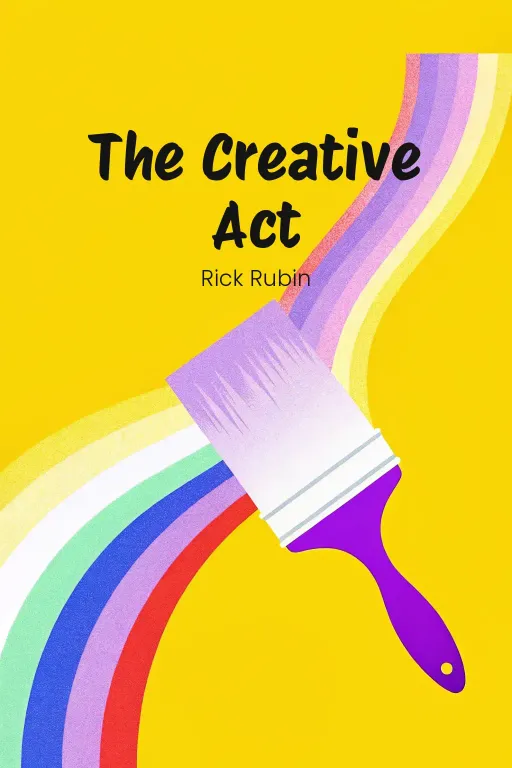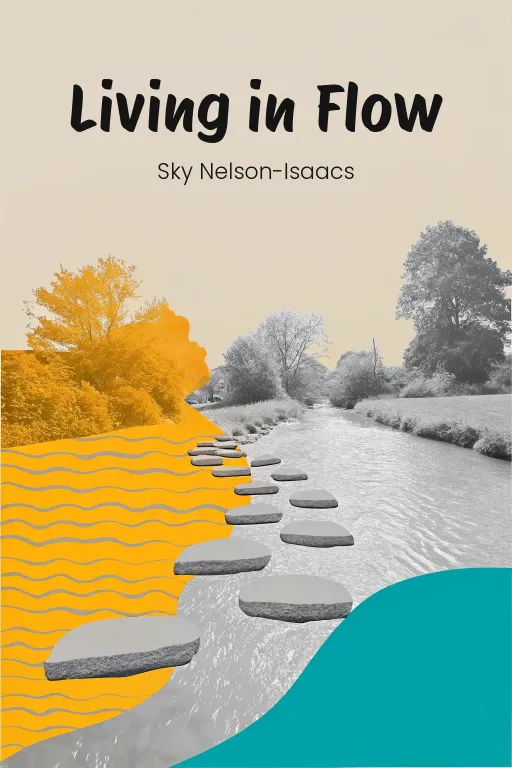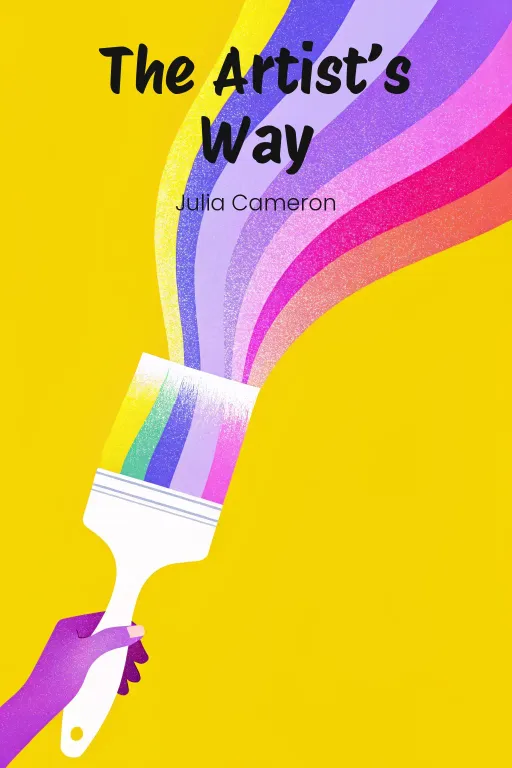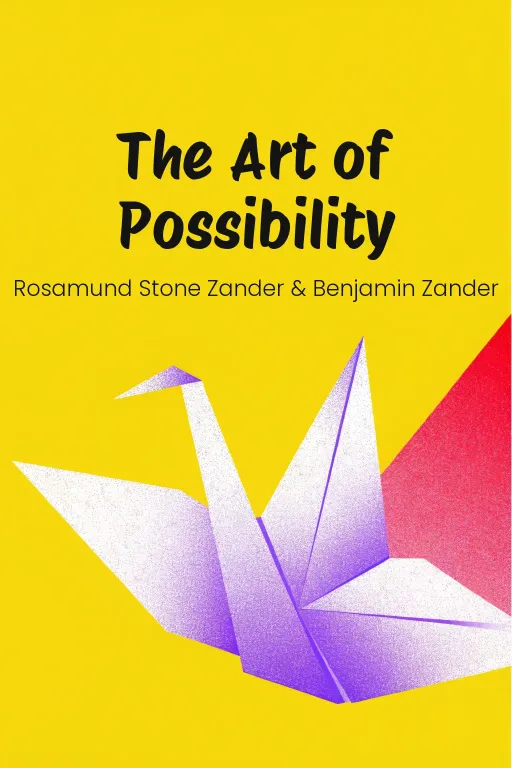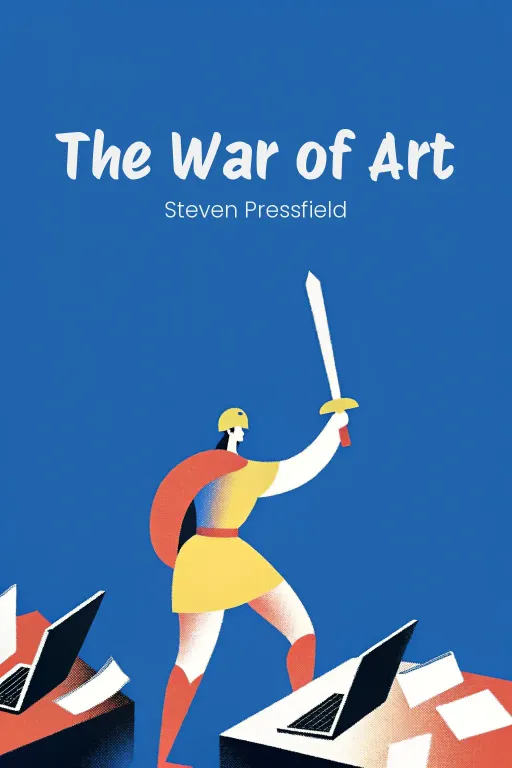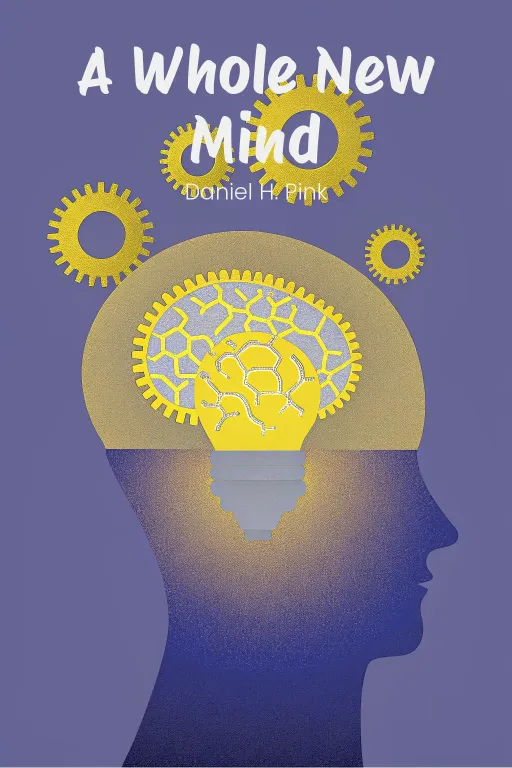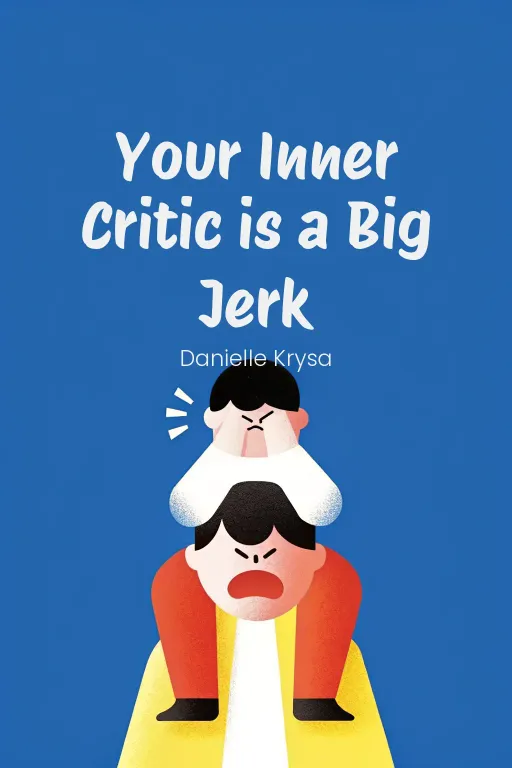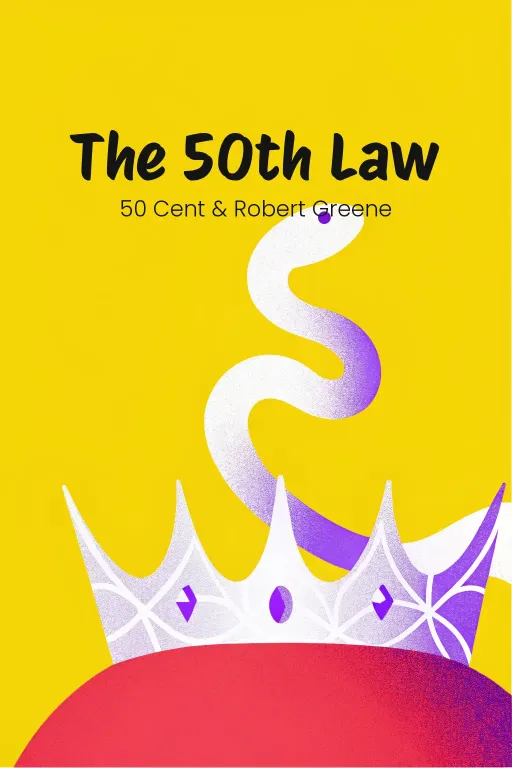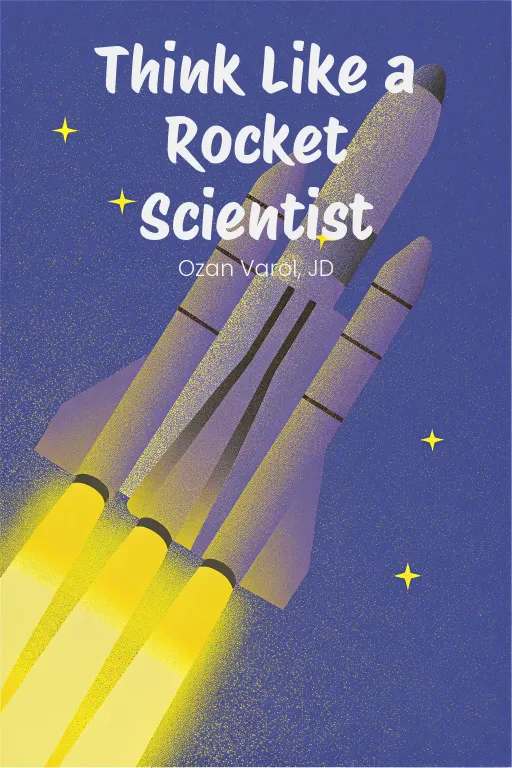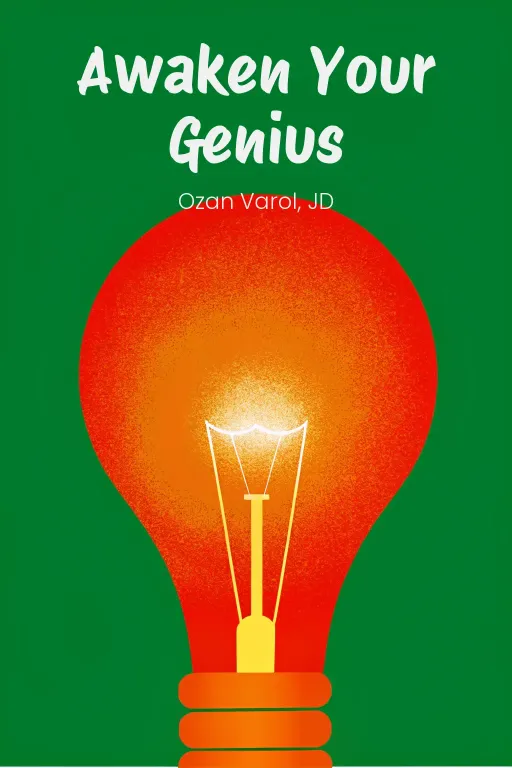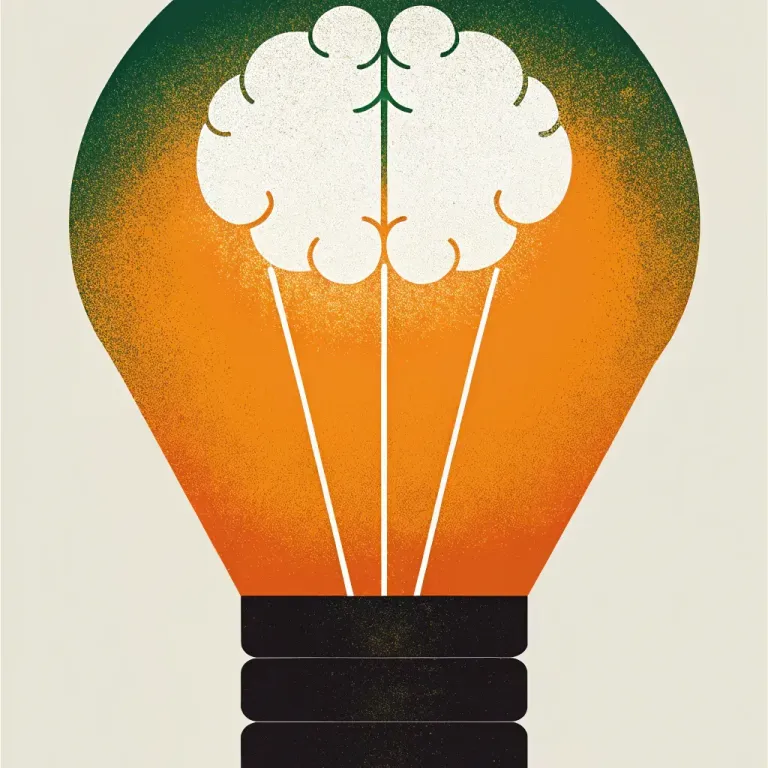
Uncage Your Brilliance: Find YOU Again!
Podcast by Chasing Sparks with Alex and Justine
Escape Conformity, Ignite Creativity, and Become Extraordinary
Introduction
Part 1
Alex: Hey everyone, welcome back to the show! Let's jump right in with a question to get us thinking: How much of who you are is “really” you? And how much is just...well, what you’ve been told to be? Justine: Whoa, Alex, deep cuts right off the bat! Sounds like we’re about to dissect our entire existence. Seriously, though, where do you even begin with that kind of question? Alex: That's exactly why I'm so excited about today’s episode. We're diving into "Awaken Your Genius" by Ozan Varol. Think of it as a guide, a practical roadmap, for anyone feeling a bit stuck – maybe trapped by expectations, or just itching to break through creatively. Justine: Hmm, so it's not just another "believe in yourself and the magic will happen" kind of thing? Alex: Definitely not. This is packed with real strategies, insightful observations, and some pretty eye-opening perspectives. We're talking about everything from how we’re taught to think, to unlearning the stuff that’s holding us back. Varol really challenges us to ditch those invisible chains, embrace our true selves, and figure out how to thrive on our own terms. Justine: Alright, you've got my attention. Spill the beans – what's our plan of attack for this? Alex: Okay, so we're tackling three main ideas. First, we're looking at how societal norms can subtly stifle our individuality. It's like there's this cage around our creativity, and we don't even realize it's there! Second, we'll get into authenticity and how approaching things with a playful, open mind can unlock your potential. Think of it as finding keys to doors you didn’t even know were locked. Justine: And the third thing? Is this where we unlock our hidden potential and become enlightened beings or something? Alex: Not quite, Justine. The last piece is about making lasting change. It’s all about the practical steps, the actionable stuff you can actually do, you know? It's kind of like watching a caterpillar turn into a butterfly. Justine: So, from cages to keys to cocoons... we're on a real metaphorical journey today, aren't we? Alright, let's jump in!
Unlearning Societal Conditioning
Part 2
Alex: Okay, so picking up where we left off, let's really dive into one of those “cages” we talked about: societal conditioning. It's wild how much it affects us, right? It's so ingrained, we barely even notice it most of the time. Justine: Right, societal conditioning. Sounds like a mouthful, Alex! Lay it out for us. What are we actually talking about here? Alex: Good point, Justine. Think of it as the collection of expectations, values, and norms that society kind of… downloads into us. It comes from all sorts of places: school, work, even our culture. All these systems try to keep things running smoothly. Problem is, sometimes that smooth operation comes at a cost: our uniqueness. We become…conformists, prioritizing fitting in over, say, thinking outside the box. Justine: So, basically, we're all just following a script someone else wrote? Without even realizing it? Alex: Precisely! And often, you’re totally unaware of the script. Take education. So much of it is about memorization and standardized tests, right? Not a lot of room for just… exploring. And that shapes how we think over time. Instead of being naturally curious, we're trained to look for "the right answer." Justine: Ah, reminds me of that quote by Neil Postman. What was it? Something about kids entering school as question marks but leaving as periods? Alex: You nailed it. It's so true, isn't it? All those kids asking "why, why, why?" gets suppressed. Instead of celebrating different ways of thinking, we try to make everyone the same. Justine: Alright, Alex, playing devil's advocate here. Societies need some order, right? We can't just have total chaos. Where do we draw the line between necessary rules and a soul-crushing cage? Alex: That's key, Justine. Societal norms aren't evil. They give us a sense of order, which we need. The problem hits when we stop questioning them. When we start treating them as gospel instead of just a starting point. Justine: I see. So, not "burn it all down," but more like, "don't let it blind you." Alex: Exactly! Want a great example of this in action? Ever heard of Gillian Lynne? Justine: Wait, is that the choreographer behind Cats and Phantom of the Opera?! You’re kidding. Alex: Seriously! And her story is all about what happens when societal conditioning totally misses the mark. As a kid, she was “a problem” in school, couldn’t sit still, couldn’t focus. People thought something was wrong with her. Finally, her parents took her to a doctor who realized she just needed to move! Dance was the answer. Just one shift—from a regular classroom to a dance studio—and bam! Her genius was unleashed. Justine: Whoa. So, the doctor didn’t see a “problem child.” He saw… hidden potential. But what if her parents hadn't taken her to that doctor? What if they just medicated her and forced her into the system? Alex: Exactly the point I want to get across, Justine. Things could have gone very differently, and unfortunately, that happens all the time. Most systems aren't built to adapt to the individual. They expect the individual to adapt to them. The tragedy is how much potential is wasted because it doesn't fit the mold. Justine: That's like trying to shove a square peg in a round hole—and then blaming the peg! Alex: Precisely. Gillian's story is a reminder of what happens when someone finds an environment where their talents thrive. It's the opposite of what we usually do, which is dismiss anything that's "different" instead of supporting it. Justine: Okay, but what about the rest of us? Not everyone has that "aha!" moment where someone sees their potential. How do we start undoing all this conditioning that's holding us back? Alex: Perfect question, Justine! The first step is sparking that curiosity again. Remember how kids are born asking questions? We need to tap into that again. Ask yourself questions like, "What genuinely excites me?" Shift your mindset from seeking permission to seeking passion. Justine: Okay, but doesn't that sound a bit… abstract? Like something a philosopher thinks about over coffee? What's the practical application? Alex: Solid point! It's not just some mental exercise. For example, schools and workplaces can create space for exploration. Imagine schools where kids can explore what interests them instead of just following a set curriculum. Or workplaces that encourage innovation through experimentation, not punishing failure. Justine: Like creating a playground for your brain? Somewhere you can safely explore without worrying about getting in trouble? Alex: Exactly! And that leads us to the second key: agency. Empowering people to shape their own path. Remember Ozan Varol and how his parents let him choose his kindergarten? That one decision gave him a sense of ownership. Justine: Okay, now you've got my attention. Is there a connection between agency and, say, being more creative or successful in your career? Alex: Absolutely! Think of Carl Sagan. He struggled with calculus until he discovered Arthur C. Clarke's Interplanetary Flight. That book connected his interest in space travel with math he didn't care about before. By aligning his learning with his passions, he transformed drudgery into something meaningful. That's powerful stuff. Justine: Alright, Alex, I'm pretty much convinced. But what about the skeptics? How do we respond to the argument that this all sounds kind of… selfish? Like prioritizing individual fulfillment over what's good for the community? Alex: That's a valid critique. Unlearning societal conditioning doesn't mean ignoring structure or ditching collaboration. It's about being aware—incorporating self-awareness and individuality into systems, not forcing conformity for conformity's sake. Communities actually get stronger when they foster different talents and perspectives. Justine: Okay, I get it now. Embracing individuality isn't selfish; it's how you bring your best self to the table for the good of everyone else. Alex: Exactly! When we break down these old norms, we create space for personal growth and collaborative innovation. Instead of just settling for average, we create the conditions for real brilliance in all its forms.
Embracing Authenticity and Creativity
Part 3
Alex: So, unlearning is really the groundwork for transforming ourselves, right? And from there, we can start to find solutions, like embracing authenticity and creativity. It's not just about recognizing the limits of what society tells us, but also finding tools – like playful thinking, freewriting, exploring different fields – that help unleash our own potential. Justine: Authenticity and creativity, huh? A powerful combo, I like it. But, come on, isn't that easier said than done? I mean, most people don't just wake up one day and decide to completely ditch societal expectations, do they? Alex: You're right, Justine, it's not an overnight thing. It's a gradual process. Let's start with playful thinking – the idea that play isn't just for kids. In fact, it's a seriously undervalued path to creativity. Justine: Playful thinking? Are you talking about grown-ups playing with building blocks or those awkward icebreaker games at parties? Alex: <Laughs> Not exactly! In this context, play is more about approaching challenges with curiosity and a sense of experimentation. It’s about letting go of strict goals and embracing spontaneity. Take Peter Buck from R.E.M., for example. He created their hit song "Losing My Religion" by just messing around with a mandolin, an instrument he wasn't even familiar with. The thing is, he wasn’t trying to write a hit song; he was just exploring. Justine: So, wait, the mandolin wasn't his usual instrument? That's like a drummer suddenly saying, "I think I'll play the harp today." And then – boom – magic unfolds. Alex: Exactly! That’s the power of play. It helps us make unexpected connections that we might miss when we're stuck in structured thinking. Buck's willingness to experiment not only unlocked his creativity but also led to a truly iconic song. Justine: Okay, I see how play can shake things up. But isn't playfulness sometimes seen as unproductive or even silly, especially in high-pressure situations at work or in school? Alex: That's a really common misconception. While structured practice is great for mastering a skill, it doesn't leave much room for new ideas. Play creates space for curiosity, allowing ideas to flow without the pressure of having to perform. Studies have actually shown that teams that incorporate playfulness tend to be more creative and innovative than teams that are very rigid. Justine: So, you're saying "goofing off" at work could save a company from, say, inventing the wheeled suitcase decades late? Alex: Precisely! And speaking of new ideas, let's move on to another powerful creative tool: freewriting. It's not just for writers who are struggling. It's about letting your thoughts flow without worrying about grammar, style, or even making sense. It's amazing how often this technique can unlock hidden insights. Justine: So, is it kind of like venting to a therapist, but your journal is the therapist? Alex: Exactly, Justine—minus the bill. Julia Cameron, who wrote The Artist’s Way, made "morning pages" popular. That's where you take some time each day to write down three pages of unfiltered thoughts. It's not about creating something perfect, it's about getting past that inner critic that tends to stifle creativity. When you let yourself just write, you clear your mind and often discover ideas you didn't know you had. Justine: Okay, but what if someone sits down to do this freewriting thing and they just write nonsense – like, "I hate Mondays" over and over. Does that still count? Alex: Absolutely! That randomness is part of it. Eventually, you'll break through the surface-level stuff and access deeper thoughts and new ideas. What's great about freewriting is that there's no "right" way to do it. That's why it's so freeing. It's the opposite of writing a research paper or a to-do list. Justine: Interesting. You said earlier that freewriting helps people reconnect with their authentic voice. What does that mean in practice? Are we just talking about remembering old hobbies, or is it something more profound? Alex: It’s both. Freewriting often reveals what's been hidden under layers of expectations from other people. It helps you understand what truly resonates with you on a personal level, not just rediscover old passions. When you stop judging your thoughts, your authentic self starts to show through, and that's where creativity really takes off. Justine: So, freewriting is like cleaning out your mental attic. It's messy at first, but then you find treasures you forgot you had. Alex: That's a great way to put it, Justine! Which leads us to our next practice: interdisciplinary exploration. Now, this might sound complicated, but it just means stepping outside of your own field to find new ideas in unexpected places. Justine: Like trying pottery if you're a programmer? Or is there more to it than just picking up random hobbies? Alex: That's part of it! But it's actually broader than you think. It's about getting inspired by different areas to spark your creativity. Take Bernard Sadow, the guy who invented wheeled luggage. The idea came to him not in a design lab, but from seeing how industrial machinery was moved with skids. A connection between two unrelated things – machines and travel – led to something that totally changed how we travel. Justine: That's amazing. A random observation turned into a billion-dollar invention. So, curiosity is the key here? Alex: Absolutely. Curiosity encourages you to ask "What if?" and connect ideas that you wouldn't normally put together. Even scientists who have won Nobel Prizes tend to have creative hobbies like painting or playing music. These activities broaden their perspectives and spark new ideas in their scientific work. Justine: And let's not forget the ultimate "What if" champions – kids! It's funny how we lose that natural sense of wonder as we get older. Alex: So true. That childlike curiosity can be a superpower if we nurture it. Let’s bring this all together with one final yet crucial step: rejecting conformity to fully embrace uniqueness. It ties into everything we’ve discussed so far. Justine: Rejecting conformity? Sounds rebellious. Any musical heroes to back this up then? Alex: Actually, yes. Let’s talk about Bruce Springsteen. Early in his career, he could have just followed trends and made music that was safe for the radio. Instead, he focused on his own experiences, found his own unique voice, and created “Born to Run”. It wasn't about fitting in, it was about standing out by being authentic. And because of that, he connected with people deeply. Justine: So, Springsteen's genius wasn't just his music; it was his refusal to compromise it? Alex: Exactly. His story shows how being yourself can unlock incredible creative potential. You don't have to try to be better than everyone else, you just have to be unapologetically you. There's real power in that. Justine: I have to admit, Alex, this sounds almost like a call to freedom. But let's be real – the road to being uniquely you isn't always easy, is it? Alex: Definitely a challenge. But each step we take—whether through playful experimentation, freewriting, looking at other fields, or rejecting what we're expected to be—brings us closer to unlocking our creativity and authenticity. And while it can be tough, the results can change our lives and even the world around us.
Navigating Transformation and Growth
Part 4
Alex: Okay, so now that we've talked about authenticity, let's get practical. How do we actually use these ideas to change and grow? This is about more than just those “aha” moments, right? It's about how we keep evolving over the long haul. Justine: Exactly! It’s easy to say, "unlock your potential," but how do you actually do it? We don't just wake up one morning, magically transformed, do we? Alex: No, and that's why the butterfly metaphor is so useful here. Transformation isn't neat or fast. It’s often messy and definitely not a straight line. Think about a caterpillar in a cocoon, right? It breaks down completely before becoming a butterfly. That's uncomfortable, but that's where the real growth happens. Justine: So you're saying we have to get comfortable with being uncomfortable? Kind of like trusting that even though things are crazy now, they'll eventually settle down? Alex: Absolutely. That disruption is what allows you to reinvent yourself. Let me give you an example. Think about the Wright brothers. Even Wilbur Wright wasn't sure that human flight could go beyond short hops at first. But just ten years later, we had transcontinental flights! Their success came from a lot of failures, constant adjustments, and a willingness to question what everyone thought was possible. Justine: Okay, that’s a great story. But, come on, we're not all inventing airplanes here. That kind of transformation feels so distant from everyday life. What does this look like for someone trying to figure out their next career move or break out of a boring routine? Alex: It starts with noticing the signals that tell you it's time for a change. These are often feelings of restlessness or dissatisfaction, like when your job feels like a trap. You need to pay attention to those little "nudges" and use them as a reason to take action. Justine: A bit like that engine warning light in your car, huh? You can ignore it for a while, but eventually, it's going to force you to pull over. Alex: Exactly! Once you see that signal, the next step is keeping up the energy to actually change. It's not just about deciding to change – you need strategies to keep going. One of the best is mindfulness. It keeps you grounded in the present and helps you deal with the inevitable uncertainty. Justine: Mindfulness... That's everywhere at the moment. But look, isn't it just sitting quietly with your eyes shut? I mean, how does that help when life is chaotic? Alex: Good point, Justine. Mindfulness is more than just being silent. It's about really noticing where you are and how you're reacting to things. For example, focusing on your breath or paying attention to what you're sensing can help you stay grounded when things are tough. It gives you space to respond thoughtfully instead of just reacting. Justine: So, it's like hitting pause on a crazy movie, giving yourself a second to figure out what’s going on before hitting play again? Alex: That's a great way to put it. And there's science to back this up. Studies show mindfulness reduces stress and makes you more adaptable – both really important when you're going through big changes. By quieting the noise in your head, you open yourself up to new ideas. Justine: Alright, mindfulness. Got it. But let's be real, it sounds a bit lonely. What about community? I mean, butterflies don't hang out in groups, but we're social creatures. Alex: You're right, and that's where connection becomes really important. Community gives you perspective, support, and keeps you accountable when you're changing. Think of it as a space where you can share experiences and get feedback, which helps you see things you might miss on your own and broadens your horizons. Justine: Sounds great. What does having a "co-creative environment" really look like? Are we talking about brainstorming over coffee, or is it more structured? Alex: It can be different things. It could be creative groups or mentorship programs. For example, some workplaces have innovation hubs where people from different departments come together to solve problems or come up with new ideas. That variety of viewpoints can lead to breakthroughs that wouldn't happen if they worked alone. Justine: That’s a great idea – assembling an Avengers-style dream team instead of trying to save the world solo. But let’s talk about the hardest part of change: letting go. How do you say goodbye to old ways of thinking or roles that don't work for you anymore? Alex: That's a really personal thing. Letting go is tough, especially if those things make you feel safe or important. Think about a caterpillar shedding its skin before going into a cocoon. It's necessary to create space for growth. Things like journaling can help you process what you're leaving behind and why. Justine: Writing it all out – like a spring clean for your emotions? "Farewell, middle-management title, hello, inner poet!" Alex: Exactly! Journaling helps you understand what's worth keeping and what you're better off without. It's not just about saying goodbye to the past, it's about setting a direction for the future. Justine: Alright, Alex, you've convinced me about letting go. But what happens when things don't go as planned? What if you let go of something and, instead of turning into a butterfly, you just feel stuck? Alex: That’s where you need to be flexible. Change isn't a straight line. You're going to hit roadblocks. The key is to see those setbacks as experiments rather than failures. That way, you can learn from them. Justine: Experiments, huh? Like scientific trial-and-error, or is it something normal people can do? Alex: Both, actually. Take Sara Blakely, the founder of Spanx. Her dad used to ask her every day, "What did you fail at today?" That made her comfortable with mistakes and turned them into chances to learn and innovate. Justine: Asking yourself, "What's my glorious flop of the day?" I love that! It turns failure into something to be proud of instead of something to be ashamed of. Alex: Exactly! And you can also take small, deliberate steps. Instead of saying, "I'm going to write a novel," start with a single chapter. These little experiments build momentum and help you avoid getting stuck trying to be perfect. Justine: Alright, rewrite the rules, embrace the chaos, and experiment unapologetically. Anything else we need to help us through this transformation? Alex: One last thing: commit to being authentic. Stay true to what you believe in, even as you change. Things like reflecting on what's truly important to you can act as a compass. It's less about becoming someone new and more about uncovering who you've always been. Justine: So, it's not about sticking on wings and pretending to be a butterfly – it’s more like discovering you were one all along. Poetic! Alex: Exactly, Justine! When change comes from a place of authenticity, it becomes sustainable. It's not just about one big moment, but about consistently aligning with your values, which will carry you through every stage of change. Justine: Alright, Alex, I think I'm ready to embrace the chaos, fail spectacularly, and get in touch with my values. Let's see where this takes us.
Conclusion
Part 5
Alex: Okay, so, to recap, we've journeyed through this whole idea of “awakening your genius” by looking at three key things. First, we talked about unlearning all that societal conditioning, right? Those invisible scripts that keep us from truly embracing who we are. Then, we dove into authenticity and creativity, you know, how things like playful thinking, freewriting, and exploring different fields can unlock potential we didn't even know we had. And finally, we touched on the messy, non-straightforward process of transformation, emphasizing stuff like mindfulness, getting support from others, and learning by doing to keep that personal growth going. Justine: You know, Alex, what's really interesting is how connected all these ideas are. It's like, you unlearn the past, embrace who you are right now, and then navigate the future with this sense of curiosity. It almost sounds like you're rewriting your own life's rulebook, one page, one line at a time. Alex: Precisely, Justine! And here's the core message: awakening your genius isn't about becoming someone completely different, but more about rediscovering and amplifying the person you've always been underneath all those layers of expectation and “shoulds”. So, a question for our listeners: What's one “rule” you've just accepted without questioning it? Because that moment you start to question things, that's when the real transformation begins. Justine: That's a great question to leave everyone with, Alex. So, until next time, take those rules, grab some crayons, and start coloring outside the lines. Who knows what kind of masterpiece you might end up creating?
